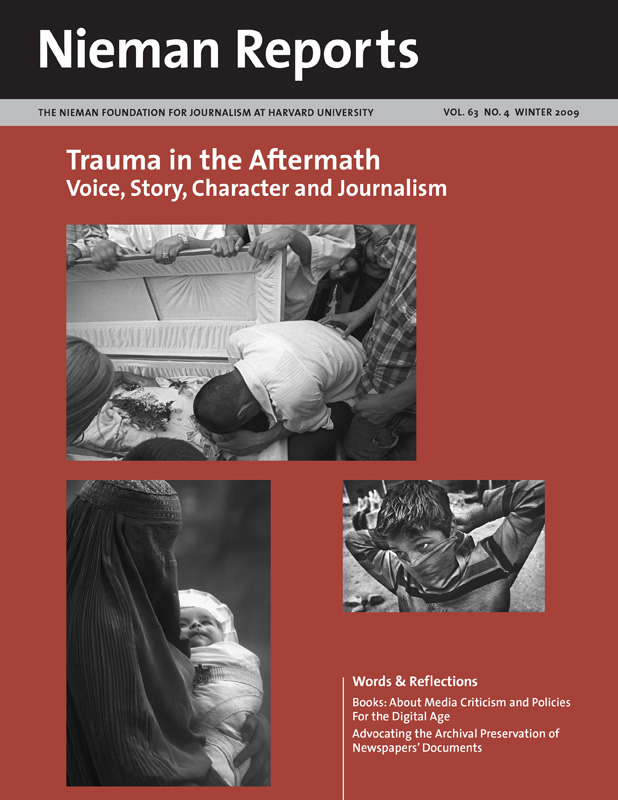
Richard Mollica, director of the Harvard Program in Refugee Trauma, introduced “Aftermath” attendees to a woman whose story is part of a collection at Harvard’s Schlesinger Library of oral histories by Cambodian women. This project was undertaken by members of the Harvard program who have cared for more than 10,000 survivors of extreme violence worldwide during the past 30 years.
Mollica tells the Cambodian woman’s story.
Mollica described what he calls the “toxic trauma story” and spoke about journalists’ use of it.
The toxic trauma story is so much a part of medicine and journalism. Brutal facts and high emotions. Where are the other three elements—the cultural meaning of trauma, revelation and our relationship to the survivor? Where are those?
A classic example happened in New Orleans. In one clip I saw there was an African-American woman with eight children floating in a bathtub. A reporter goes “Excuse me, how does it feel to be in a bathtub floating down the street? Wow, it’s really upsetting. Well, thank you very much. This is ABC News.” Then the woman starts going off into the horizon and disappears. I have this clip, but I don’t know where she went. Where is she? I’m still thinking about this lady and her kids. I don’t know where she ended up in the bathtub with those kids.
When I hear the toxic trauma story, I immediately switch off. I’m just raising the question about comparing what I call the full trauma story with the toxic trauma story. I don’t know if you use this term in journalism. But I think one needs to consider whether certain stories are being told in ways that are toxic because they’re not about revelation. They’re not about learning. They’re not about cultural meaning. And I think these elements are key to the full trauma story.



